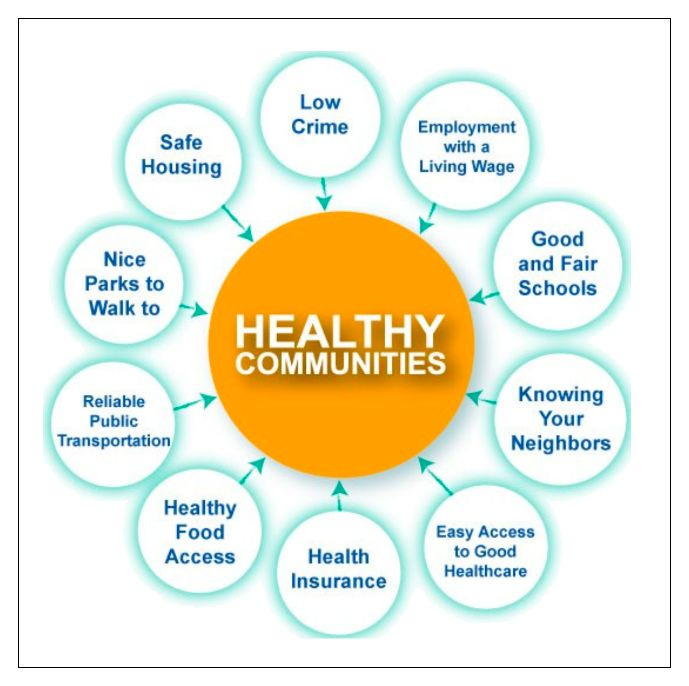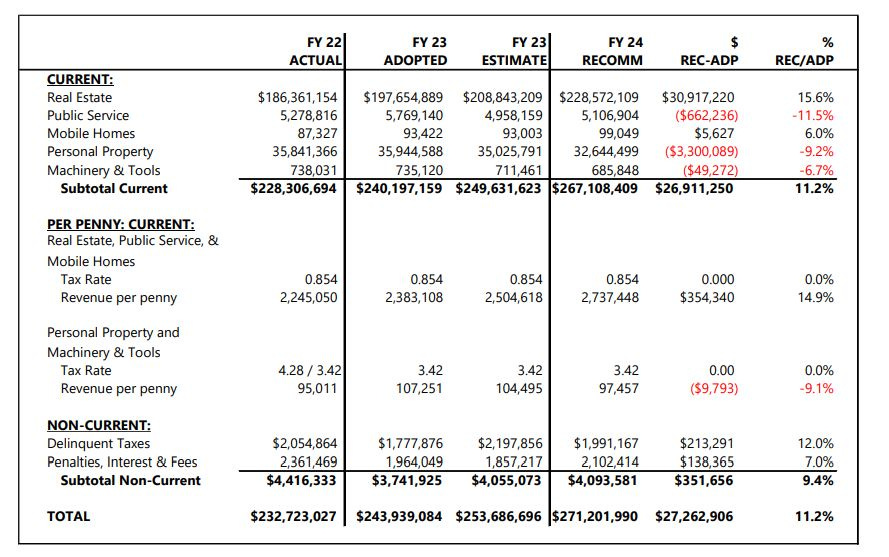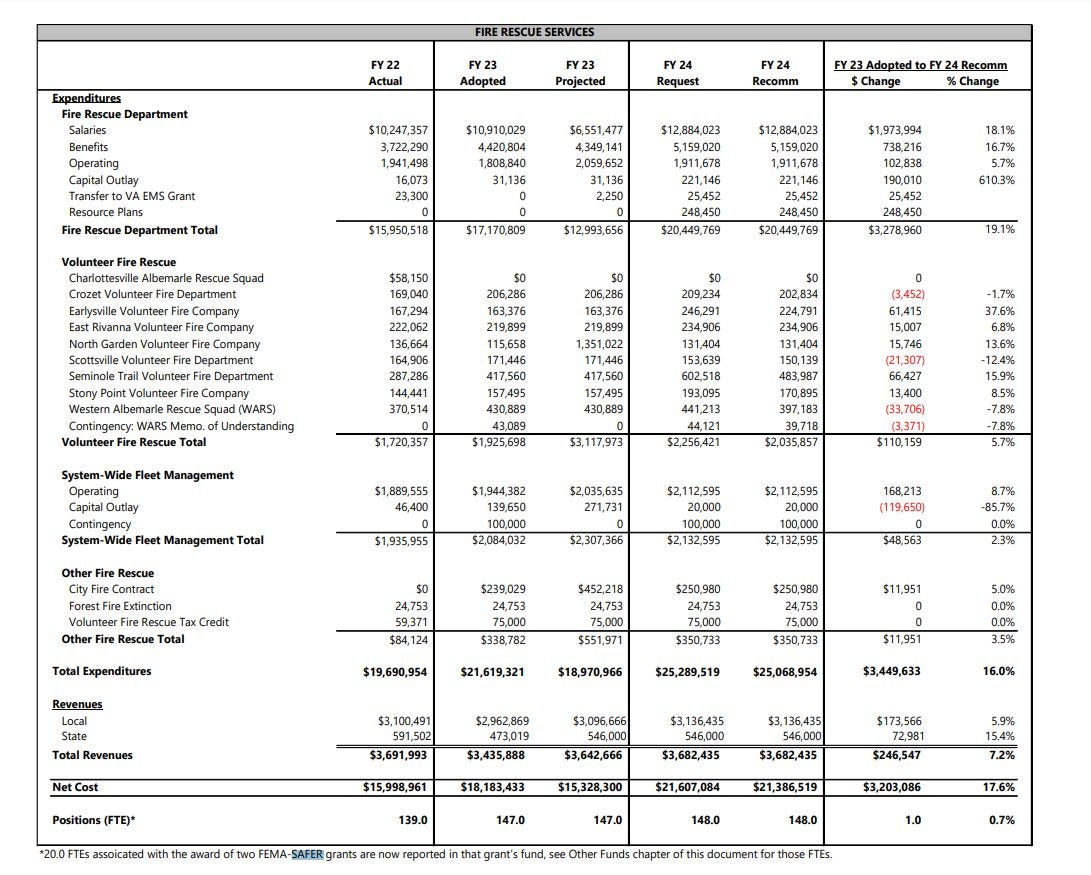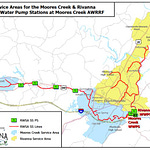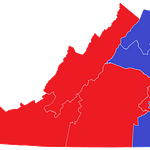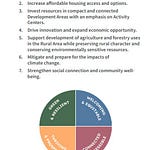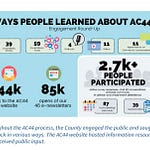Three years ago this week, the world changed for most of us in Virginia as a state of emergency was declared and businesses slowly closed down. I ended up devoting most of my time to producing a podcast in order to understand what was going on. Here’s the first episode from three years ago today.
That podcast would grow into Charlottesville Community Engagement, a newsletter intended to bring people stories of what’s happening. Today’s edition is a reflection of sorts on that experience. I’m Sean Tubbs, still not sure what I do for a living exactly.
On today’s program:
A top epidemiologist at the University of Virginia reflects on three years since the beginning of the pandemic
Virginia passenger rail hits a new record ridership in January
Albemarle County Supervisors begin going through the $551.51M total budget for FY2024
First shout-out: Piedmont Master Gardeners seek items for Green Elephant Sale
In today’s first subscriber supported public service announcement: If you are cleaning out your garage, basement or garden shed as spring approaches, the Piedmont Master Gardeners will gladly take any yard and garden equipment you no longer need.
PMG is now accepting donations of new and used tools, hoses, decorative items, outdoor furniture—virtually anything used to create, maintain and enjoy a garden. These “Green Elephants” will be offered for sale to the public during PMG’s Spring Plant Sale. Donated items may be dropped off at 402 Albemarle Square between 10 a.m. and noon on Tuesdays and Saturdays through the end of April. PMG is not able to accept plastic pots or opened chemicals. To arrange a pickup or for more information, contact the Piedmont Master Gardeners at greenelephant@piedmontmastergardeners.org.
As for that sale? Mark your calendar for Saturday, May 6, at Albemarle Square Shopping Center.
Three years have passed since the pandemic
It has now been over three years since former Governor Ralph Northam declared a state of emergency related to the arrival of COVID-19 as part of a global pandemic. Three years ago this week, rules were put in place to keep people apart to stop the spread of what was then an unknown virus whose impact wasn’t fully known.
“It’s clear that we’ve learned many lessons along the way and I think the overall assessment is that this pandemic was incredibly challenging,’ said Dr. Costi Sifri is the director of hospital epidemiology at the University of Virginia Health System.
Dr. Sifri has spent much of that time talking to reporters each week as part of an attempt to help the public better understand what we were going through. He’s been quoted many times in this newsletter as vaccines were rolled out to the public and as new waves of the novel coronavirus posed new threats.
“I think that there are many important lessons that have been learned and I think we need to really be diligent and take times like this to take a look back and understand what we did well, and what were the missed opportunities,” Dr. Sifri said.

Dr. Sifri said one continuing challenge is the need for concise and clear communication about what was happening with the virus as well as potential remedies. He said there were lots of opportunities for misinformation to spread.
The likelihood of a new pandemic or other public health threat is not a low number. A warming planet opens up new potential for new diseases to spread. One already has.
“During that period of time we’ve seen the global pandemic of monkey pox or M pox,” Dr. Sifri said. “That was not a pandemic when COVID emerged but it has occurred since then. In addition we’ve seen ebola again in Uganda and an ebola-like virus that’s called Marburg that’s currently causing an outbreak of infections in equatorial Guinea and Cameroon.”
The increase in the price of eggs is attributed to the rise of H5N1 which is devastating poultry farms across the world and threatens to spread to humans or other mammals. Hepatitis is also on the rise, as are other infectious diseases.”
“Just here in the United States, we’ve seen polio in New York and some measles in Ohio,” Dr. Sifri said. “We’re currently seeing bacterial meningitis through a bacteria called Meningococcus in the Hampton Roads area that’s caused several deaths.”
I don’t write this out to scare anyone. Being alive on a planet filled with life comes with the reality that nothing is ever certain. But think how far our species has come to be able to identify existential threats. Dr. Sifri said when it comes to protecting from infectious disease, more investment is needed.
“We need ongoing investments in public health and public health professionals who are there to help us confront and deal with and mitigate and prevent these types of emerging and re-emerging infectious diseases, let alone ones that we may not know about yet,” Dr. Sifri said.
The public health workforce is also fatigued after a perpetual crisis. Dr. Sifri said the pandemic revealed the need to improve the overall system.
“We need to understand that these types of challenges become very centered on issues like disparity of care and access to care so we need to and I think we’re committed to doing this working with our community partners to make sure that we are reaching out to those communities to make sure that medications, diagnostics, and opportunities for education and information sharing are available to all of the citizenry in our community,” Dr. Sifri said.
One such program that emerged during the pandemic is WellAWARE, a partnership program between UVA Health, the Charlottesville Free Clinic, and Central Virginia Health Services that seeks to serve medically underserved communities. I wrote a segment in the July 13, 2022 edition of this show previewing one of their events to promote walkability. (look back and see!)
“We are an innovative, new community health program that sends community health workers into people’s homes to help connect them to better health care,” said Betsy Peyton, WellAWARE’s director.
Peyton said this includes neighborhoods such as Rose Hill and the 10th and Page neighborhood as well as the Esmont area in southern Albemarle.
“We chose these neighborhoods related to health data,” Peyton said. “Highest rates of obesity, stroke, highest rates of low acuity emergency room visits, so people going to the emergency room for things like a headache.”
WellAWARE is intended to connect people to primary care physicians.
“We’ve signed a lot of people up for Medicaid who are scared to go the doctor because they weren’t sure how they would pay,” Peyton said. “We drive people to the doctor or provide free cabs to the doctor.”
But back to now and the third anniversary of the COVID-19 pandemic. Dr. Sifri said things are different now.
“This time last year we were on the back side of the first omicron surge and that caused the largest amount of infection that we’d seen during the pandemic,” Dr. Sifri said. “But we can all recall that after that surge we continued to see cases through the summer at a fairly brisk rate and were even ramped up through this winter.”
Dr. Sifri said the impact on the community has lessened with the development of new medications that can be administered to people with higher risks of complications.
“The vaccines have provided a level of protection to individuals that were not available this time a couple of years ago,” Dr. Sifri said. “There’s also experience of having had a lot of COVID in communities so that there is now a much larger amount of immunity.”
However, Dr. Sifri said some are unable to take medications such as Paxlovid due to potential side effects or other drug interactions. Some medications are no longer useful such as monoclonal antibodies. He said there’s still a need for epidemiologists to remain vigilant.
“People like me or people who are working in health systems and in public health need to continue to pay attention to the virus around the globe,” Dr. Sifri said. “We need to continue to do those things like sequencing the virus and how its changed genetically, how its genome as evolved.”
How has your life changed since the pandemic? Mine has merged with this newsletter. The Charlottesville Quarantine Report lasted about 50 episodes or so. I’ve now done over 500 of these more or less by myself. I’ve had quite a bit of loss, but haven’t we all? I am a journalist because I want to understand things and I am grateful for all I have gained through the support of readers and listeners.
Virginia passenger trains set new record in January
The temporary shutdown of the pandemic caused a plunge in many charts including those that depict ridership on public transit. The Virginia Passenger Rail Authority this week has reported that ridership on state-funded trains has not only returned to pre-pandemic levels but has also set a new record.
Ridership on the four Amtrak routes in January was 87,300, a 27.7 percent increase over January 2020. That’s a new record for the first month of the year. The train lines to Roanoke and Norfolk both saw big increases in ridership due to additional service.
The Amtrak service between Roanoke and D.C. saw 22,639 riders in January, up from 16,689 three years ago. The Norfolk route had 31,226 passenger journeys, up 62.5 percent from January 2020. The service to Newport News stayed about the same at 24,215 and the service to Richmond was up 11.4 percent to 9,220.
The numbers for both January 2021 and January 2022 were much lower.
“The strength of these January ridership numbers – during what is usually a slow travel month – shows that demand for rail service across the Commonwealth continues to grow,” said VPRA executive director DJ Stadtler in a press release. “It also reveals that more and more travelers are looking for alternatives and will choose rail when the service is reliable, safe, and on time.”
The first state-funded passenger service started in October 2009 between Lynchburg and D.C. Now there are eight roundtrips daily with stops at 17 locations across all of the corridors.
Overall, 1,021,452 passengers took train trips on Virginia’s Amtrak trains in 2022, a record year of ridership.
Second shout-out: WTJU’s Puzzle Hunt Preview Party is coming up soon!
In today’s second Patreon-fueled shout-out: WTJU wants you to know the 2nd annual Cville Puzzle Hunt is coming! Save the date for Sat, August 26 for this citywide cerebral puzzle for you and your friends to solve.
Before then, whet your puzzle solving appetite at WTJU’s Puzzle Hunt Preview Party! Thursday, March 16, 7 – 9 p.m. at The Looking Glass @ IX Art Park, 522 2nd St SE.
Featuring music, drinks, and a mini-puzzle to get you warmed up for the main event in August.
Everyone is invited to this free preview party. But please register at CvillePuzzleHunt.com to attend.
Albemarle Supervisors continue review of $551.5M budget
Albemarle County Supervisors are in the throes of going through a $551.5 million budget and have held three budget work sessions including one that wrapped up today.
The total budget is $551.5 million as we learn from Andy Bowman, the chief of the county’s Office of Management and Budget.
“This is a decrease from last year of $35 million, or six percent,” Bowman said.
Bowman explained that this is in part because of a reduction in federal funding now that the pandemic-era relief programs are in the past. Bowman also explained a one-time transfer of $7.5 million from revenues from FY23 to the capital improvement program.
“This is one of the strategies staff has taken to provide the one-time funding into the CIP above the normal formula amount so that we are able to balance a CIP that does not delay or descope projects despite the challenge of massively increasing project costs and increased borrowing costs as well.”
Bowman said real estate assessments were stronger than expected, but personal property assessments are weaker than expected.
“In calendar year 2023, we know that we have an increase of 13.46 percent in our [real estate] reassessment,” Bowman said. “In calendar year 2024, and I will say that anyone who reads whether it be a housing data economist or whatever it may be, no one projects that rate of growth for housing that has taken place is going to repeat.”
At the moment, staff is assuming a two percent increase for 2024 for real estate property assessments based on surveillance of economic indicators.
Bowman also went through the requirement in Virginia code to advertise a lowered rate and effective rate for FY24.
“What is the tax rate that would be required to generate the same amount of revenue to essentially offset the increased from reassessments,” Bowman said. “For calendar year 23, that number is 75.3 cents per $100 of assessed value.”
If the Board wanted to lower that rate, they would have to have done so today. Each penny on the tax rate generates about $2.7 million.
“The budget I will say is balanced at 85.4,” said Chief Financial Officer Nelsie Birch. “So if we go to 75.3 just as an example, there would have to be the off-setting expenditure or revenue increase to cover.”
This year, the budget also includes an additional $240,000 for a tax relief program for the elderly and disabled. That’s for a total of $1.72 million for FY24. Visit the county’s website if you’re interested in learning more about the program.
The personal property tax rate is being kept lower than it has been in FY22 due to the higher than assessments. Unless changed by Supervisors, the rate will remain at $3.42 per $100 of assessed value. That’s the same rate as FY23 but Bowman estimated the revenue will bring in $3.3 million less than in FY23.
“A hypothetical to kind of put some of this together is that if the Board was interest in generating as much revenue as the 2023 adopted budget and every penny is about $100,000, you would need about 34 cents to get back to the FY23 budget at the rate of $3.76,” Bowman said.
Bowman said that change is not staff’s recommendation. Staff is not recommending any increase in the rate for food and beverages nor transient lodging.
The end of federal funding through the American Rescue Plan Act means that Albemarle has to begin paying for programs that were used to help some in the community during the pandemic.
“We had a program for rent relief that we paid for out of ARPA,” Birch said. “We are now moving local funding into supporting for the very first time this need that we’ve not had to fund out of the local general fund.”
Another big change happening is an increased investment in transit due in part to rising costs as well as the microtransit project slated to take place later this year. The contribution to Charlottesville Area Transit increases 30 percent to $1.3 million and the contribution to Jaunt increases by about a million to over $3.3 million.
“We’ve had a considerable increase in our contribution to Jaunt and the complexity of transit is only getting more complex and we do not have a subject matter expert on staff who can navigate successful between CAT and Jaunt and how we can ensure we are properly leveraging the right dollars to help protect the county’s coffers,” Birch said.
Birch said staff wants to hire a consultant to help advise on a way going forward. Albemarle County has no vote in the way Charlottesville Area Transit is funded. There’s also an ongoing study of governance structures worth noting.
“One of the possibilities being investigated by the [Thomas Jefferson Planning District Commission] and the Regional Transit Partnership is the possible thought of going to an authority,” said, Supervisor Diantha McKeel.
McKeel has been a member of the Regional Transit Partnership since it was formed in the fall of 2017. She wanted to know if that consultant would be advising on that option.
Birch said the consultant will seek ways to maximize funding under the current structure, where Albemarle does not have a significant ownership stake in any of the transit systems.
“And then also using a consultant to help us navigate from today to tomorrow and where could we go and how would that look and helping us through that transition,” Birch said.
There is also funding in the recommended budget to match federal grants to hire additional fire and rescue personnel. As with many places across Virginia, local governments continue to pick up more of the work. Deputy Chief David Puckett explained there is a long lead time to train and recruit people and so they look a few years into the future.
Albemarle has previously applied for and received two Staffing For Adequate Fire and Emergency Response (SAFER) grants.
“We decided to recommend to the county executive’s office that we pursue a third SAFER grant for a total of 30 firefighters,” Puckett said.
Some of the additional firefighters would staff a second fire engine to serve southern Albemarle which has long response times. The other would be for additional staff to be dedicated to ladder trucks with a new truck to be based at the Monticello Fire Station, also known as Station 11.
“We think this is essential to add as the development area particularly continues to urbanize and develop,” Puckett said.
SAFER grants pick up the salary and benefits for three years. Puckett said the county will hear back from the federal government in the fall.
On Monday there was a work session on the school budget as well as the capital improvement program. As I finalize this newsletter, Supervisors are on their third work session. (see end notes)
Questions raised by Supervisors in between meetings are all publicly available. Take a look on the county’s budget page. As of this writing, there are 14 answers to 14 questions.
There will be another work session on March 22 and the one on March 29 there will be a work session on employee retention and funding under the category of “workforce stabilization.” I’ll have a story about today’s work session in the near future. When? Keep reading and or listening!
Reading material:
Shootings are up in and around Charlottesville [and] officials can't explain why, Alice Berry, Charlottesville Daily Progress, March 11, 2023
Historic Oak Lawn estate in Charlottesville hits market for first time since 1847, Hawes Spencer, Charlottesville Daily Progress, March 12, 2023
Despite $38M cost increase, Albemarle County says all projects for 2024 are on track, Dryden Quigley. NBC29, March 13, 2023
Race bias suit against school board proceeds, Nick Hunton, Virginia Lawyers Weekly, March 13, 2023
Virginia has rolled out its third version of history standards. Critics say problems remain., Nathaniel Cline, Virginia Mercury, March 13, 2023
The Corner continues to undergo retail changes as new chains take the place of historic places, Elizabeth Rambo, Cavalier Daily, March 14, 2023
Notes for #509:
This is an odd week and I’ve not had time to get to work mostly, but I assure you I’ll be back at full-speed soon. I’m helping my parents move to a new house. That doesn’t mean that the world has stopped, but the table upon which I usually do this work when I’m in Lynchburg is no longer there. That’s delayed this version, which I had hoped to come out on Monday, but there’s a Robert Burns couplet about this somewhere.
The rest of this week may also be a bit dodgy. I hope to get one out, but I already suspect it will be done on Friday. I’ll be back to full speed soon. As such, I’ll hold off on the sales pitch today except to thank Ting for their matching of the initial payments of paid Substack subscribers. Please consider joining them!
Thanks to Wraki for the music and P.J. Sykes for the opening theme. And thank you for reading to this final word. You’re my favorite reader!




